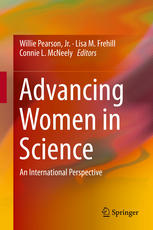

Most ebook files are in PDF format, so you can easily read them using various software such as Foxit Reader or directly on the Google Chrome browser.
Some ebook files are released by publishers in other formats such as .awz, .mobi, .epub, .fb2, etc. You may need to install specific software to read these formats on mobile/PC, such as Calibre.
Please read the tutorial at this link: https://ebookbell.com/faq
We offer FREE conversion to the popular formats you request; however, this may take some time. Therefore, right after payment, please email us, and we will try to provide the service as quickly as possible.
For some exceptional file formats or broken links (if any), please refrain from opening any disputes. Instead, email us first, and we will try to assist within a maximum of 6 hours.
EbookBell Team

0.0
0 reviewsMany countries have implemented policies to increase the number and quality of scientific researchers as a means to foster innovation and spur economic development and progress. To that end, grounded in a view of women as a rich, yet underutilized knowledge and labor resource, a great deal of recent attention has focused on encouraging women to pursue education and careers in science — even in countries with longstanding dominant patriarchal regimes. Yet, overall, science remains an area in which girls and women are persistently disadvantaged. This book addresses that situation. It bridges the gap between individual- and societal-level perspectives on women in science in a search for systematic solutions to the challenge of building an inclusive and productive scientific workforce capable of creating the innovation needed for economic growth and societal wellbeing.
This book examines both the role of gender as an organizing principle of social life and the relative position of women scientists within national and international labor markets. Weaving together and engaging research on globalization, the social organization of science, and gendered societal relations as key social forces, this book addresses critical issues affecting women’s contributions and participation in science. Also, while considering women’s representation in science as a whole, examinations of women in the chemical sciences, computing, mathematics and statistics are offered as examples to provide insights into how differing disciplinary cultures, functional tasks and socio-historical conditions can affect the advancement of women in science relative to important variations in educational and occupational realities.
Edited by three social scientists recognized for their expertise in science and technology policy, education, workforce participation, and stratification, this book includes contributions from an intellectually diverse group of international scholars and analysts and features compelling cases and initiatives from around the world, with implications for research, industry practice, education and policy development.